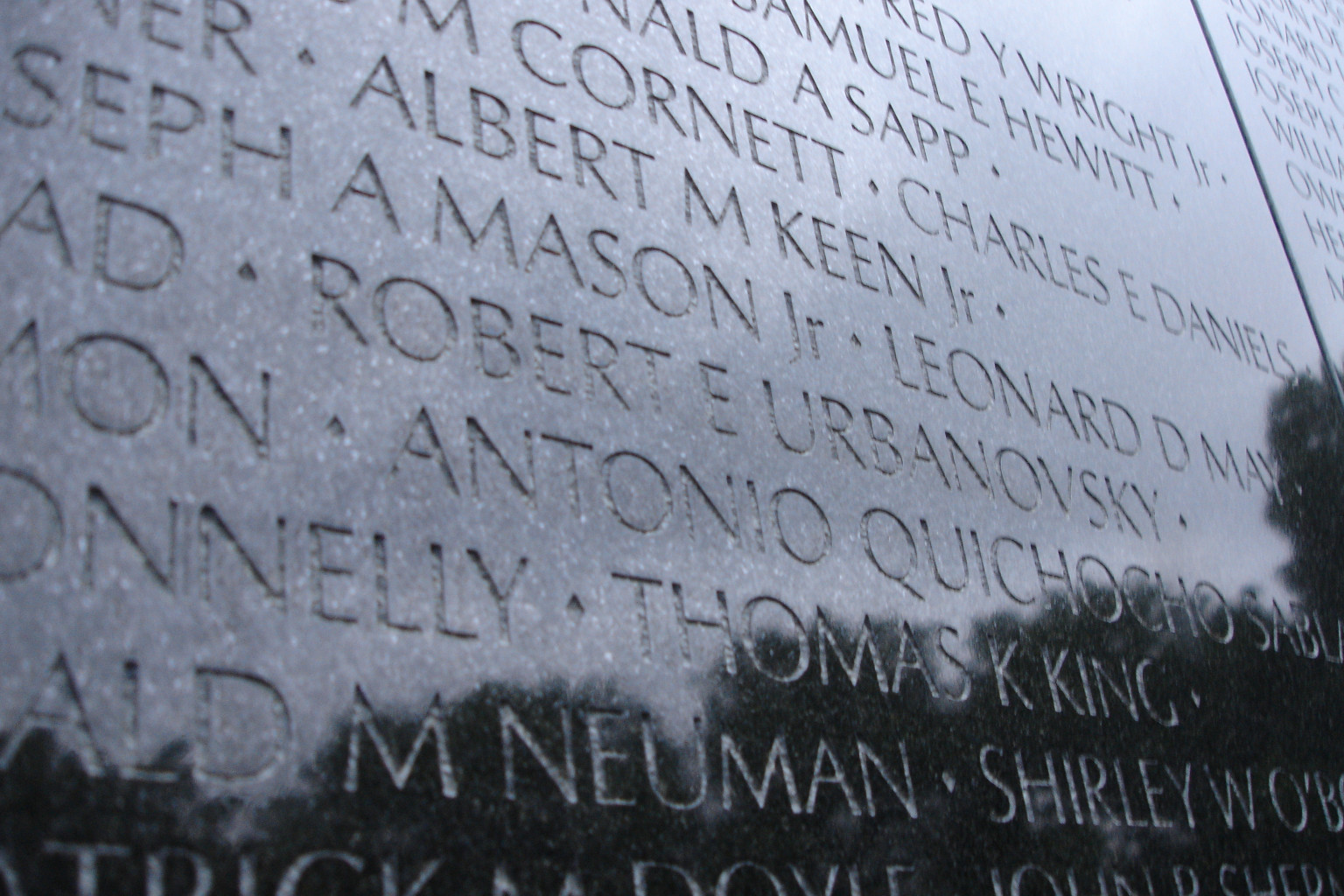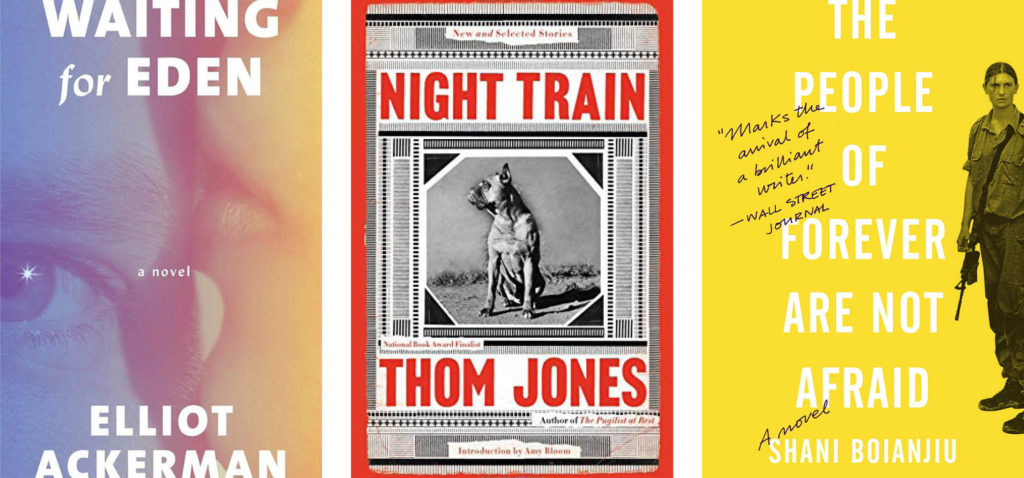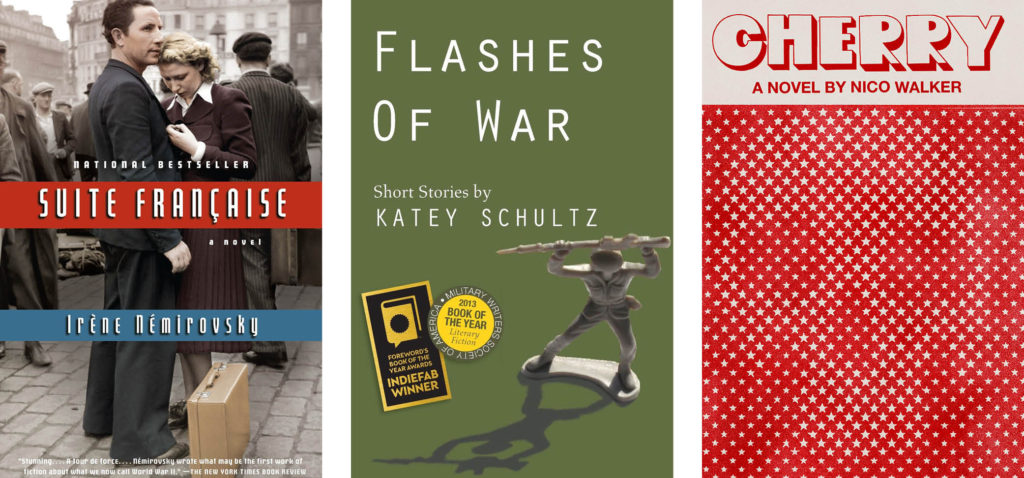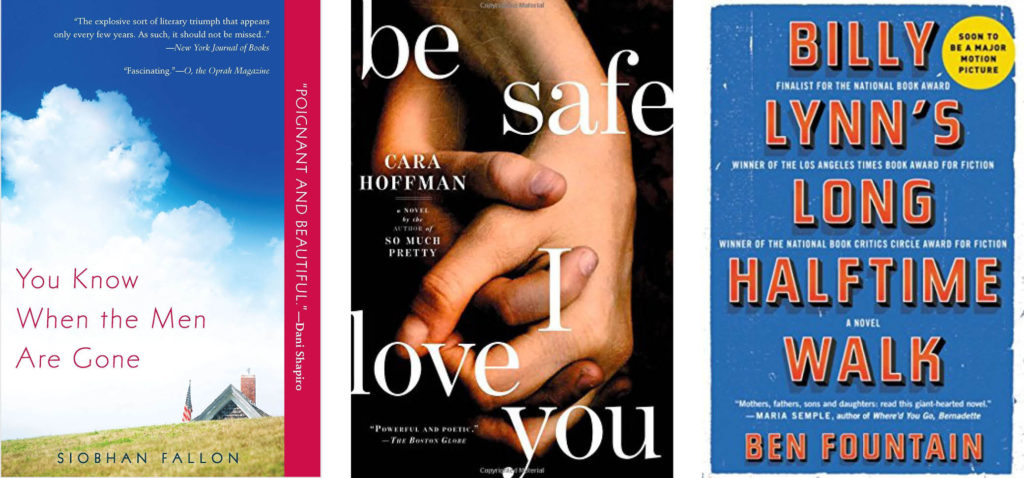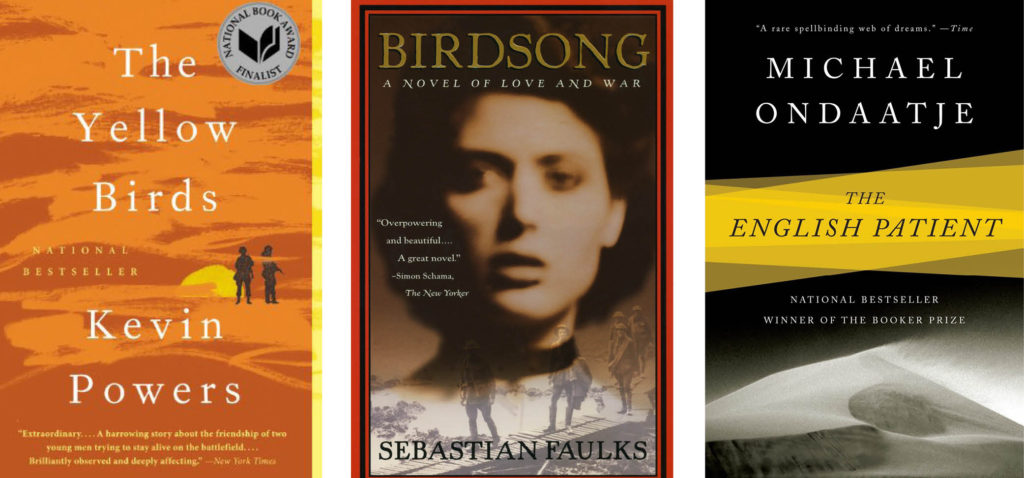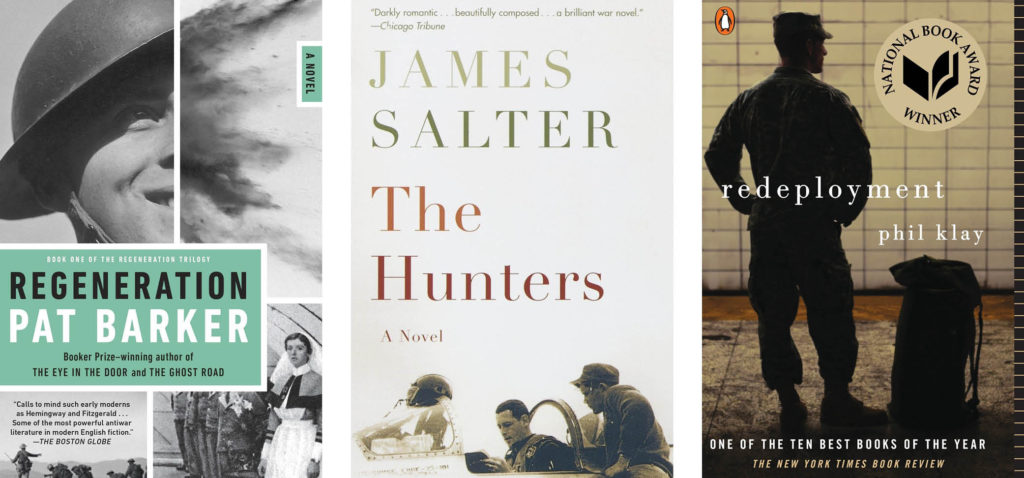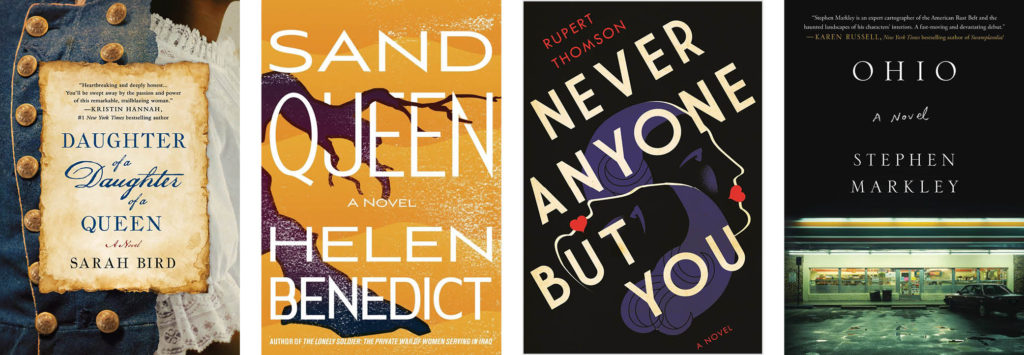When was the last time you read a literary novel about war? Perhaps its been a while, and if it has, you’re not alone. Fiction about soldiers fighting wars – and the impact of violent conflict on individuals and families long after the fighting has ceased – are a genre unto themselves. With Veteran’s Day approaching, November is the ideal month to give these books a fresh look.
origin of veteran’s day
Veteran’s Day is celebrated in the U.S. on November 11 each year to mark the end of World War One. On the 11th hour of the 11th day of the 11th month in 1918, the guns on the Western Front fell silent after more than four years of continuous warfare during the First World War. In London, Armistice Day – also known as Remembrance Day or sometimes Poppy Day – is also commemorated on November 11th.
That makes this a good time to take a fresh look at the literature of war.
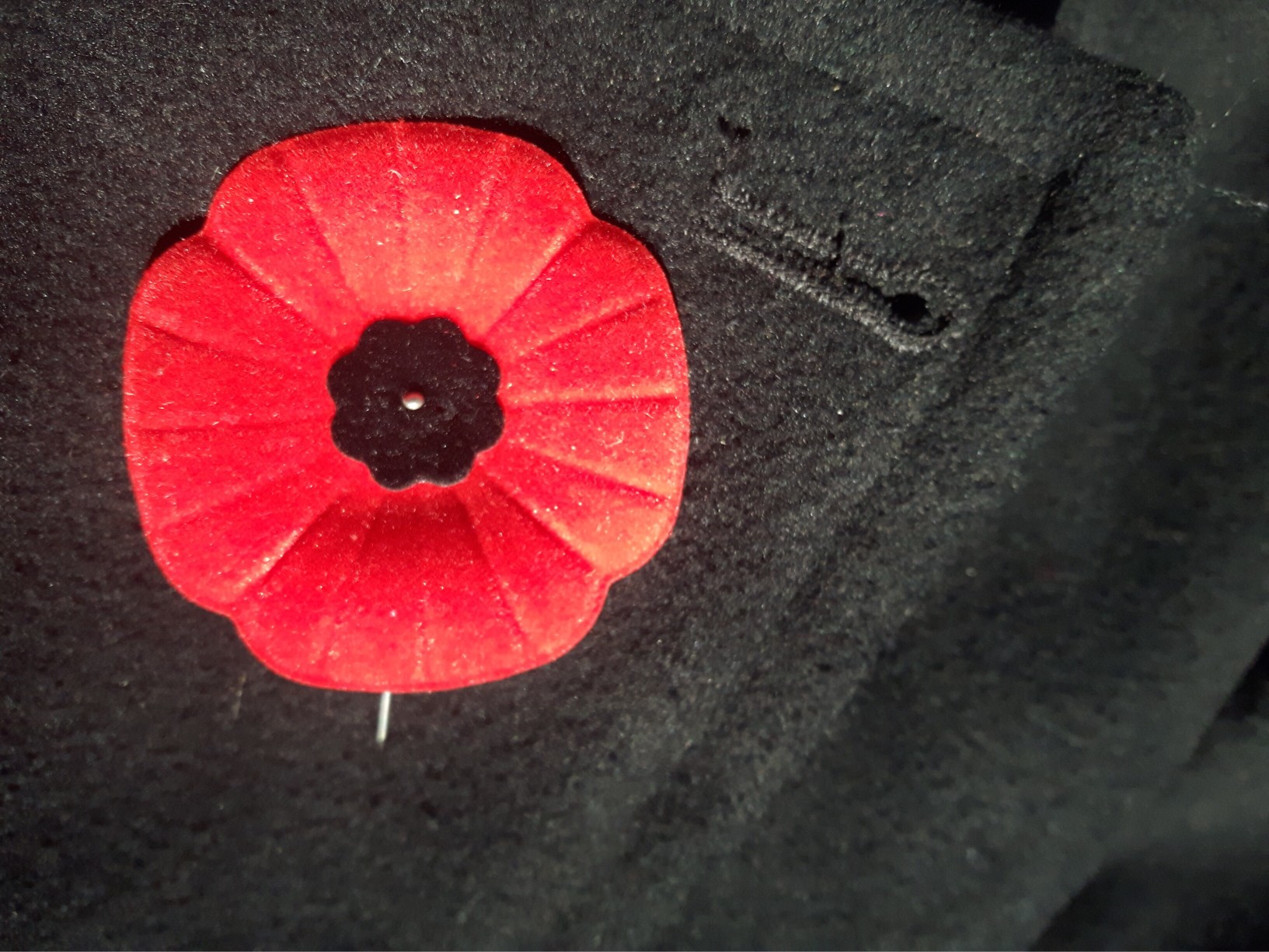
Lapel Poppy to commemorate Remembrance Day in the UK
war novels are often assigned reading only
Several post-World War II novelists like Ernest Hemingway, Kurt Vonnegut, Herman Wouk, Joseph Heller, Tim O’Brien, Kevin Powers and others are on assigned reading lists in high school and college. However, after graduation, there are plenty of avid literary fiction readers who haven’t voluntarily picked up any of these books since.
Why is that?
Well, if you’re like us, you might instinctively turn away from novels about war and soldiers, convinced that they’re too violent, too macho, too celebratory of conquest, and lacking in nuance – blunt objects that won’t engage us the way other novels do.
Dear reader, we urge you to reconsider.
why read a war novel now?
It is often said that reading fiction is a way to understand The Other – to get inside of the heads – or shoes, or psyches – of people who are unlike us.
We believe that. And as Veteran’s Day approaches, we have been reading novels that deliver a visceral sense of the toll of war at the human level. Particularly from the point of view of soldiers.
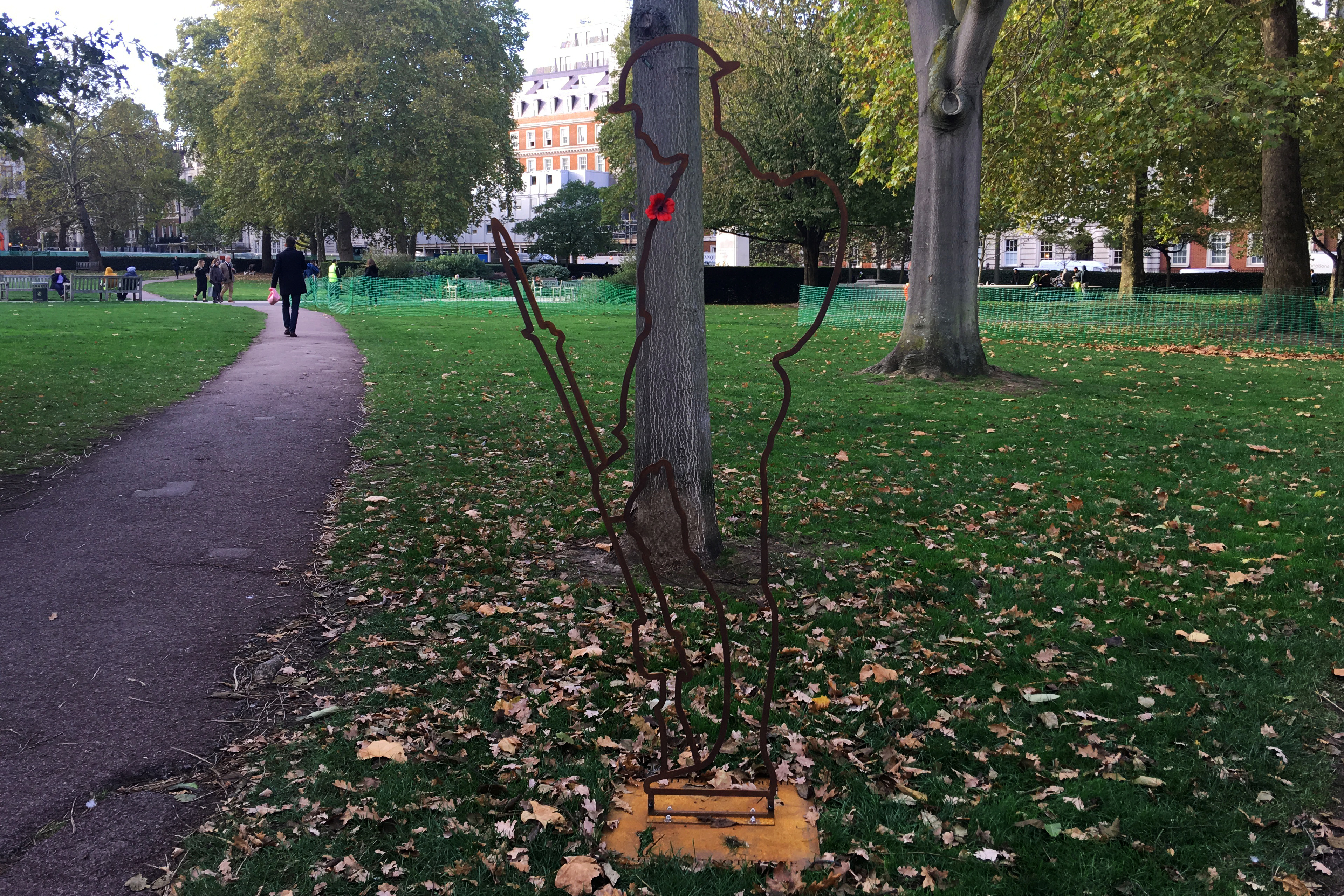
Commemorative Statue in Grosvenor Square, Mayfair, London Photo Credit: Dandelion Chandelier
We’ve never served in the military, but we know many people who have (and still are). Reading the daily paper or cracking open a military memoir or autobiography can take us part of the way to understanding and empathizing with our fellow citizens in the armed forces.
But the best war fiction somehow makes us experience their trials, challenges, triumphs and enduring wounds at a much deeper level than even the most riveting non-fiction.
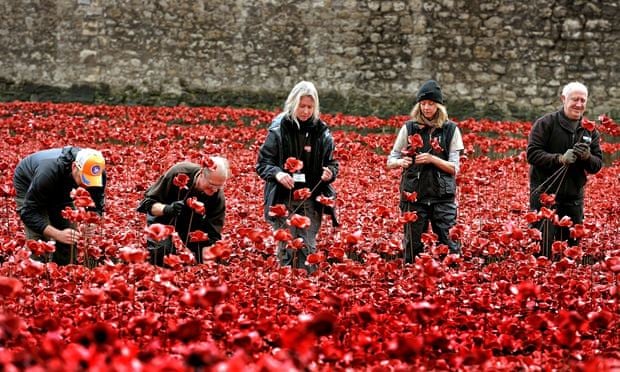
Volunteers at the Tower of London collecting poppies from the commemoration of the 100th anniversary of the start of WWI
are there war novels by and about women?
Until recently, women were not allowed to fully serve in the armed forces of many countries (although there are some notable exceptions). So for quite some time, the literature of war was written by men, mostly about men, and it felt as if those books were meant to be read primarily by men.
Even now, women’s voices in the fiction of war are quite often heard through protagonists who are spies, or who volunteered to be a part of the Resistance, or who played non-combatant roles like code crackers and nurses.
In recent years, though, as more women serve in combat roles and more women writers publish works that tell their stories, there are excellent novels by and about women in this genre. We’ve added a number of them to our list, below.
good ways to get started
If you want to dip into the literature of war, you could reach for one of the “modern classic” war novels. You could pick up The Sun Also Rises by Ernest Hemingway; The Return of the Soldier by Rebecca West; or Catch-22 by Joseph Heller. Or dip into The Things They Carried by Tim O’Brien; or Slaughterhouse Five by Kurt Vonnegut. Or re-read All Quiet on the Western Front by Erich Maria Remarque.
But if you want a more recent take from a wider range of voices and experiences, here’s our suggested list of literary novels written in the voices of soldiers, combatants and non-coms. Some of these are about involuntary warriors. All of them are about those who have returned from war, or who are on leave from it, and the impact that violent combat has on them and their families and loved ones.
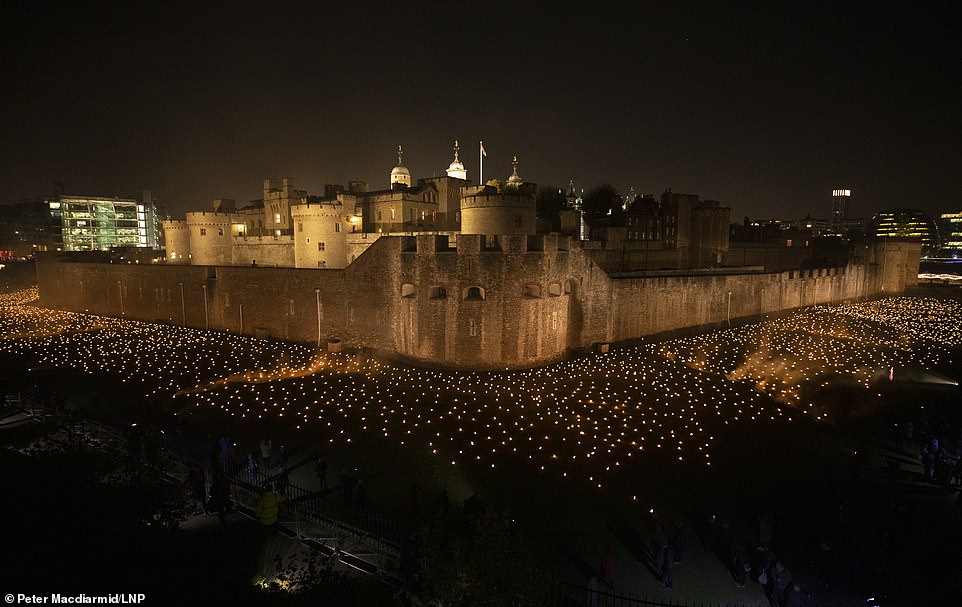
The Tower of London Lights November 2018 to commemorate the 100th anniversary of the end of WWI
Whether you reach for a novel that’s vintage, or one that’s fresh from the publisher, for satire or something deadly serious, it’s possible that reading one or more of these will make Veteran’s Day a more profound experience for you this year. We hope it will.
our recommended novels for veteran’s day:
1. Waiting for Eden by Elliot Ackerman.
Eden Malcom lies in a hospital bed, unable to move or to speak, imprisoned in his own mind. His wife Mary spends every day on the sofa in his room. He has never even met their young daughter. And he will never again see the friends and fellow soldiers who didn’t make it back home after the attack that has left him shattered. As he begins to find a way to communicate, some troubling truths about his life before leaving for the war come to the surface, causing him to question whether he can ever again be the same man that he once was.
2. Night Train: Collected Stories by Thom Jones.
This selection of short stories written by the late author presents a vibrant cast of deeply damaged protagonists, some suffering from traumas endured on the battlefields of Vietnam. In a recent review, the Wall Street Journal book critic Sam Sacks (who has impeccable taste in fiction) wrote: “there are moments in Jones’s stories . . . where the writing seems capable of transcending the forces of destruction it so unforgettably evokes.”
3. The People of Forever are Not Afraid by Shani Boianjiu.
This is the tale of three teenagers’ experiences in the Israeli Defense Forces. Yael, Avishag, and Lea grew up together in a tiny, dusty Israeli village. When they are conscripted into the army, their lives change in unpredictable ways, influencing the women they become.
4. Suite Française by Irène Némirovsky.
A bestselling Jewish author living in Paris, Némirovsky finished writing this novel (actually, two distinct novels out of a planned series of 5) about the city at the start of the Nazi occupation just months before being sent to Auschwitz, where she later died. This book, first published six decades after her death, provides a riveting account of life in occupied Paris.
5. Flashes of War by Katey Schultz.
In this collection of short stories, the award-winning author shares tales of struggles by a wide range of people touched by war. Among them? A returning U.S. soldier, an Afghan mother, a courageous amputee and a ghost who cannot let go. This vibrant collection illuminates moments of fear, introspection, confusion, and valor.
6. Cherry by Nico Walker.
In this recently-published semi-autobiographical novel, an Iraq veteran turns to robbing banks in order to fund the heroin addiction consuming him and his wife. It’s based on the author’s own story of a journey from army medic to criminal. Walker is currently serving 11 years in jail.
7. You Know When the Men are Gone by Siobhan Fallon.
In this collection of interconnected stories, an army of women are waiting at Fort Hood, Texas for their men to return from combat. Through a series of loosely interconnected stories, Fallon takes readers onto the base, inside their homes, into their marriages and families. These are the intimate places not commonly seen in news coverage. These glimpses behind the scenes bring new meaning to the sign above the gate that one sees when leaving Fort Hood: You’ve Survived the War, Now Survive the Homecoming.
8. Be Safe, I Love You by Cara Hoffman.
This novel about a young woman soldier who returns from Iraq haunted by a tragic mistake was named one of the 5 Best in Modern War Fiction by The Sunday Telegraph. Before she enlisted, classically-trained singer Lauren Clay had been accepted to a prestigious music conservatory, but her family’s financial demands pushed her into joining the army. Her younger brother Danny signs his quirky, heartfelt letters to her “be safe, I love you.” It’s only when she returns home that her family realizes the steep price this soldier has paid with her service.
9. Billy Lynn’s Long Halftime Walk by Ben Fountain.
Winner of the National Book Critics Circle Award for Fiction, and described as “The Catch-22 of the Iraq War,” this debut novel, a satire set in Texas, explores the national disconnect between the war at home and the war abroad. It’s the story of the surviving members of the heroic Bravo Squad and their experiences on one exhausting stop in their media-intensive “Victory Tour” at Texas Stadium, football mecca of the Dallas Cowboys.
10. The Yellow Birds by Kevin Powers.
In Al Tafar, Iraq, twenty-one-year old Private Bartle and eighteen-year-old Private Murphy cling to life as their platoon launches a bloody battle for the city. Bound together since basic training – when Bartle makes a promise to bring Murphy safely home – the two have been dropped into a war neither is prepared for.
11. Birdsong by Sebastian Faulks.
Spanning three generations between the First World War and the present, this novel traces the life of young Englishman Stephen Wraysford. He passes through a tempestuous love affair with an unhappily married woman in Amiens, France in 1910. Haunted by the outcome of this doomed affair, he carries the memory of it with him into the dark, surreal world beneath the trenches of No Man’s Land in World War I.
12. The English Patient by Michael Ondaatje.
In this Booker Prize winning novel, four damaged survivors find themselves thrown together at a villa during the Italian Campaign of World War II. The nurse Hana, exhausted by death, obsessively tends to her last surviving patient. Caravaggio, the thief, tries to re-imagine who he is, now that his hands are hopelessly maimed. The Indian sapper Kip searches for hidden bombs in a landscape where nothing is safe. And at the center lies the English patient, a man nameless and hideously burned, a riddle and a provocation to his companions.
13. Regeneration by Pat Barker.
In 1917, Siegfried Sasson, noted poet and decorated war hero, publicly refused to continue serving as a British officer in World War I. His reason: the war was a senseless slaughter. He was officially classified “mentally unsound” and sent to Craiglockhart War Hospital. There a brilliant psychiatrist, Dr. William Rivers, set about restoring Sassoon’s “sanity” and sending him back to the trenches. This novel tells what happened as only a novel can. Its the first of a trilogy of novels about the war and its psychological effects. The third installment, The Ghost Road, won the Booker prize in 1995.
14. The Hunters by James Salter.
Based on the author’s experiences as a fighter pilot in the Korean War, this novel was originally published in 1956, and re-released in 2012. Captain Cleve Connell arrives in Korea to fly a newly operational F-86 fighter against Soviet MIGs. His goal is to become an ace. But his missions prove fruitless, and disappointment and fear take over. It takes a dramatic mission above the Yalu River to reveal the depth of the pilot’s courage.
15. Redeployment by Phil Klay.
Winner of the 2014 National Book Award for Fiction, set on the front lines of the wars in Iraq and Afghanistan, this collection of short stories is a mediation on “brutality and faith, guilt and fear, helplessness and survival.” Across nations and continents, Klay sets in devastating relief the two worlds a soldier inhabits: one of extremes and one of loss.
16. Daughter of a Daughter of a Queen by Sarah Bird.
Though born into bondage in Missouri before the Civil War, Cathy Williams was never allowed to consider herself a slave. According to her mother, she was a captive, destined by her noble warrior blood to escape the enemy. When Union general Phillip Henry Sheridan, an outcast from West Point, presents her with a chance at freedom, she takes it. At war’s end, she makes the stunning decision to disguise herself as a man and join the Army’s legendary Buffalo Soldiers, the African-American regiments formed in 1866, becoming the first woman ever to serve as a soldier in the peacetime Army.
17. Sand Queen by Helene Benedict.
In this novel, nineteen-year-old Kate Brady has joined the army to bring honor to her family. Instead, she finds herself in a forgotten corner of the Iraq desert in 2003, guarding a makeshift American prison. She befriends a female Iraqi medical student whose family has been detained at the camp. The two forge an alliance, but it is soon strained by war. The American soldier is in equal danger from the enemy and the predatory men in her unit. The Iraqi civilian suffers from starvation and the loss of her home and family. Each comes to have a drastic and unforeseeable effect on the other’s life.
18. Never Anyone But You by Rupert Thomson.
Based on a true story, this novel of wartime begins in the years preceding World War I, when two young women meet, by chance, in a provincial town in France. They embark on a clandestine love affair, and ultimately move to Paris. Having reinvented themselves as Claude Cahun and Marcel Moore, they move in glamorous circles, meeting everyone from Hemingway and Dalí to André Breton, and produce provocative photographs that still seem avant-garde today. In the 1930’s, with the rise of anti-Semitism and the threat of fascism, they leave Paris for Jersey, and it is on this idyllic island that they confront their destiny, creating a campaign of propaganda against Hitler’s occupying forces that will put their lives in jeopardy.
19. Ohio by Stephen Markley.
Set in an archetypal small town in northeastern Ohio—a region ravaged by the Great Recession, an opioid crisis, and the wars in Iraq and Afghanistan—this debut novel depicts one feverish, fateful summer night in 2013 when four former classmates (one a veteran of three tours in Iraq) converge on their hometown – each with a specific goal and all haunted by their experiences as part of a generation that has come of age knowing only war, recession, political gridlock, racial hostility, and a simmering fear of environmental calamity.
Can novels really affect change?
We’d like to think so.
Even if it’s just change inside of each of us – or even better, change and deepen the connections between and among us. That would be a worthy task to undertake this Veteran’s Day.
Come and join our community! For a weekly round-up of insider ideas and information on the world of luxury, sign up for our Dandelion Chandelier Sunday Read here. And see luxury in a new light.
Join our community
For access to insider ideas and information on the world of luxury, sign up for our Dandelion Chandelier newsletter. And see luxury in a new light.

